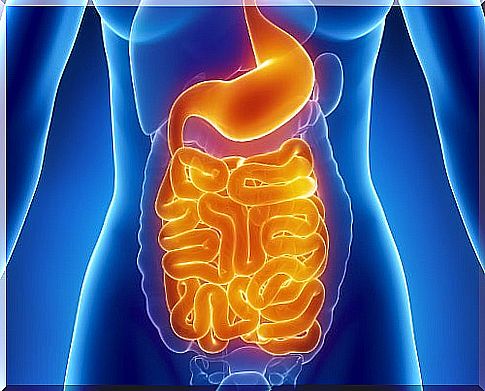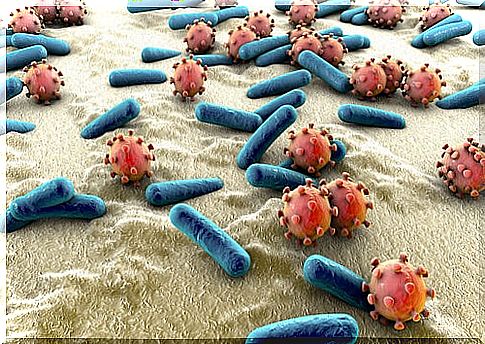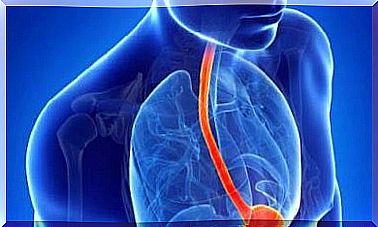Importance Of Taking Care Of The Intestinal Flora To Avoid Digestive Problems
Taking care of the intestinal flora is essential to avoid the weakening of the immune system and the appearance of diseases and infections that can affect the whole organism

The intestinal flora is a group of living bacteria found in the digestive tract. In addition, they play a very important role in human health.
Many people might think that because they are bacteria they are harmful to the body. However, for some time it has been determined that there are some that are not harmful. In fact, they can help eliminate those that do affect the body.
The problem is that the modern lifestyle and acidic diets are generating a bacterial imbalance that, in addition, is influencing the increase in the main health disorders.
For this reason, it is very important that everyone is aware of its importance and is informed about how to regulate it frequently.
Why is the intestinal flora so important?
Also known under the name of microbiota, this set of bacteria develops at birth as a result of different biological processes.
First of all it begins to form during breastfeeding. Then, their diversification is completed, more or less during the first two years of age.
Until now it has not been possible to determine precisely how many bacteria make it up, but it is estimated that there are around 400 different classes for a total of 10 million.
In addition to being unique in each organism, its importance lies in the fact that both its genes and its biological activities have an action on health or in the development of various diseases.
It is necessary to improve the body’s defenses and, in addition, it participates in the metabolic and digestive processes.
What happens if the intestinal flora is unbalanced?

Taking into account that the balance of the intestinal flora is vital to enjoy good health, there is no doubt that if it becomes destabilized it can cause serious problems not only at the digestive level, but also in other systems of the body.
You should know that the imbalance of the intestinal microbiota is a condition related to the pathogenesis of intestinal diseases, such as irritable bowel syndrome, celiac disease and inflammatory bowel disease.
Therefore, it is important to go to the doctor so that he detects the problem and can recommend the most appropriate treatment.
Among the main disorders that are produced by a reduction or alteration of this group of bacteria include:
- Gas and flatulence.
- Abdominal swelling
- Constipation.
- Diarrhea.
- Weakening of the immune system.
- Infections
- Irritable bowel syndrome.
Foods to regulate the intestinal flora
Food is the best way to regulate the intestinal flora to enjoy good health. It has been shown that achieving such a balance can significantly improve the quality of life of those who suffer frequent digestive complaints, such as inflammation and gas.
Fruits and vegetables

Three pieces of fruit and two of vegetables a day represent a diet rich in fiber, especially if they are complemented with whole grains and legumes.
Fiber is an essential nutrient for digestion, which helps preserve good microorganisms for good intestinal function.
According to some studies, different components of the diet, such as fiber and fat, can change the gut microbiota and inflammatory markers.
However, its consumption is relatively poor in most of the population, since the tendency to eat food of industrial origin is still maintained.
Fruits rich in fiber:
- Avocado.
- Blueberry.
- Raspberry.
- Apple.
- Lemon.
- Blackberry.
- Banana.
- Khaki.
- Orange.
Fiber-rich vegetables:
- Artichokes
- Green peas.
- Níscalos.
- Green beans.
- Cauliflower.
- Spinach.
- Beet.
Probiotics
Probiotic foods are a source of live bacteria and lactic acid that, in addition to supporting flora balance, also help strengthen the immune system.
However, it is important to know that not all probiotics are the same or have the same benefits. For example, there are probiotics that are good for irritable bowel, but have no effect on allergies or diarrhea.
What we can say is that bifidobacteria , present in some yogurts and fermented dairy products, are very good for improving digestive health and improving defenses.
Prebiotics
They should not be confused with probiotics because they are so different. Prebiotics are indigestible plant substances that are part of various foods.
Its main function is to stimulate the growth of bacteria within the colon, while boosting its activity. Once they reach the intestine, they serve as food for beneficial bacteria such as lactobacillus and bifidobacteria .
In addition, it is proven that its regular consumption facilitates the absorption of calcium and iron, which helps prevent bone problems.
Prebiotic foods include:
- Artichokes, chicory and banana: They provide inulin, a natural prebiotic.
- Legumes, potato and sweet potato: They contain raffinose and stachyose.
- Garlic, onion and leek: They contain derivatives of inulin and fructooligosaccharides.
- Wheat, oats and barley: They provide inulin.
- Asparagus: They are a source of fructooligosaccharides.
As you have seen, diet and lifestyle play a fundamental role in balancing the intestinal flora. Even so, it is important to see a doctor so that he can detect the problem causing the imbalance and can recommend the most appropriate treatment.









